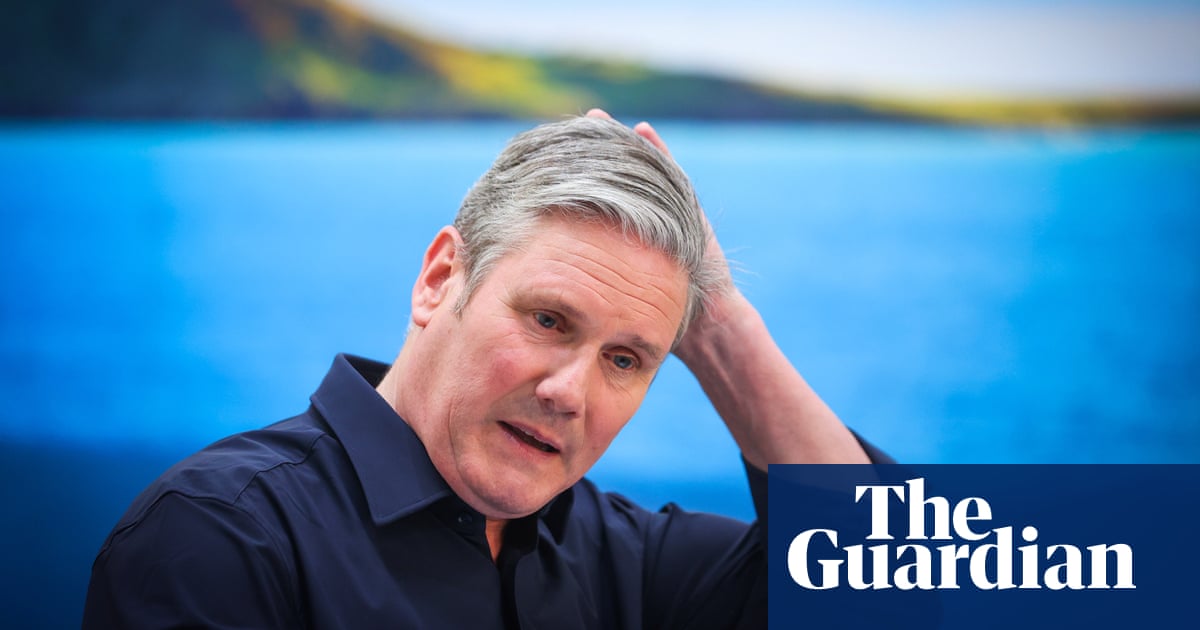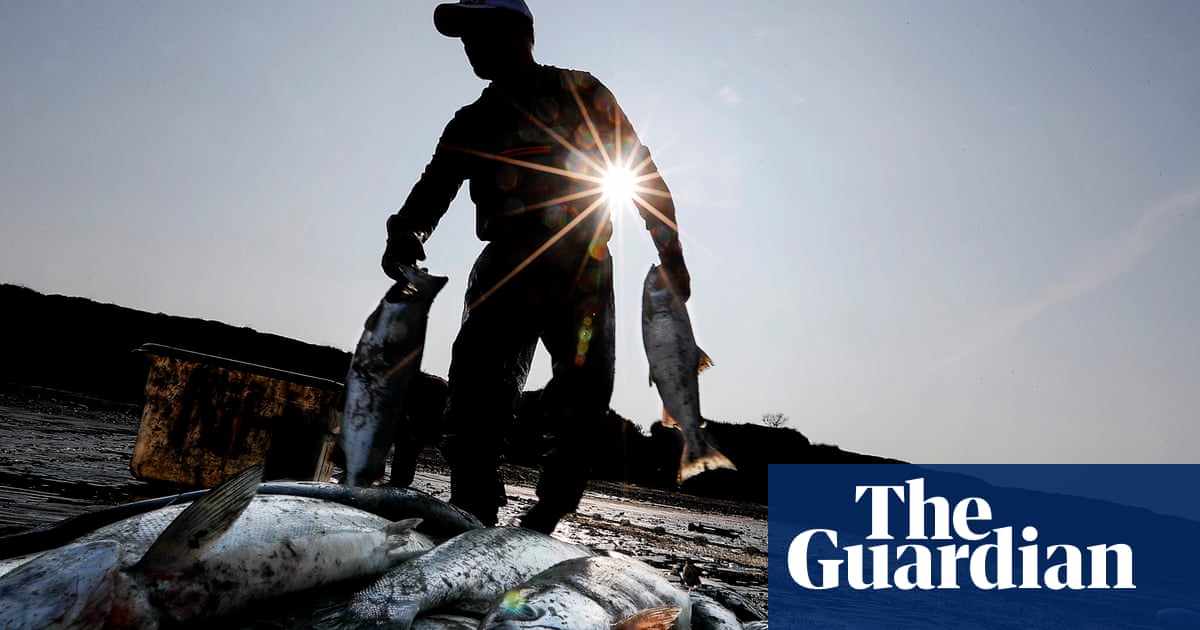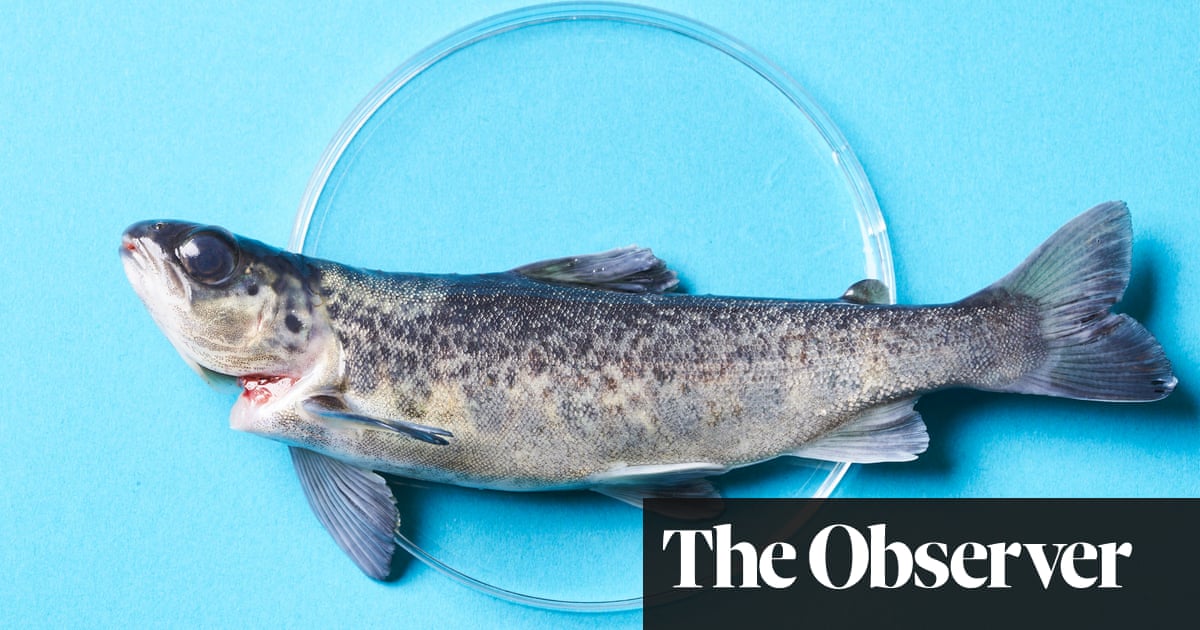Starmer to announce scaling back of £28bn green investment plan | Keir Starmer


Keir Starmer will announce on Thursday that he is scaling back Labour’s £28bn green investment programme, in his biggest policy U-turn since becoming party leader.
Senior Labour sources have told the Guardian that Starmer will finally confirm the party is no longer planning to spend £28bn a year on environmental schemes, given the economic uncertainty caused by the Conservative government.
It follows weeks of uncertainty about the policy as competing factions within Starmer’s senior team pushed him to keep the pledge or ditch it.
Starmer has insisted for several weeks that he still intended to meet the pledge, which was first made in 2021 as part of a promise that Labour would be the greenest government in history. But doing so has become far more difficult since it was made, given that the worsening fiscal outlook has left less room to borrow more without long-term debt levels going up.
Some shadow ministers have urged Starmer for months to drop the target, arguing that it plays into Conservative attacks about Labour’s fiscal credibility.
Others have warned that doing so will only accentuate the feeling among many voters that Starmer cannot be trusted to stick to his word. It is the latest in a series of major policy reversals since he became Labour leader, including dropping a promise to scrap university tuition fees and to impose higher rates of income tax on top earners.
Recent media briefings by shadow ministers have led to speculation of a split between Starmer and his shadow chancellor, Rachel Reeves. Reeves was asked repeatedly about the pledge in an interview with Sky News last week but failed to mention the £28bn on 10 separate occasions.
Starmer on the other hand had used the figure as recently as this week, when he told Times Radio: “We want to have clean power by 2030 … That’s where the £28bn comes in, that investment that is desperately needed for that mission.”
Labour sources said last week that the pledge was now “dead”, an assessment that was bolstered by comments from Darren Jones, the shadow chief secretary to the Treasury, that the target would now “move around”.
Party officials have previously indicated they would keep the core mission of investing in green infrastructure, as well as previously announced plans such as the creation of GB Energy, a publicly owned clean energy company.
The opposition also intends to spend up to £6bn a year on a home insulation scheme, although that also remains subject to the party’s most important fiscal rule – to have debt falling as a percentage of economic output by the end of the five-year period.
The £6bn plan triggered a separate row on Wednesday after an official government analysis claimed it would actually cost double that. Labour said this was “nonsense”, saying it had never claimed all the money would come from central government.
But some experts warned that even with the kind of private investment Labour says it can bring in, it will not be able to hit its target of insulating 19m homes in a decade.
The row over the insulation scheme helped highlight the broader questions around the party’s overall green investment plans.
In recent weeks, senior Conservatives have claimed that sticking to the £28bn figure would mean a probable tax rise. Those attacks have worried some around Starmer, including Morgan McSweeney, Labour’s director of campaigns, and Pat McFadden, the party’s campaigns coordinator.
McSweeney recently warned shadow ministers about the possibility that Labour could slump in the polls in the final weeks before an election if the party makes promises it is not able to fully defend.
While scaling back the green prosperity plan has been under consideration for some weeks, dropping the £28bn annual target, unveiled with great fanfare by Reeves at the Labour conference in 2021, is politically risky for Starmer and his team.
Sunak accused Starmer on Wednesday of being a serial flip-flopper. In comments that were otherwise overshadowed by his controversial remarks about trans people, the prime minister said: “It is a bit rich to hear about promises from someone who has broken every single promise he was elected on.”
Source link




